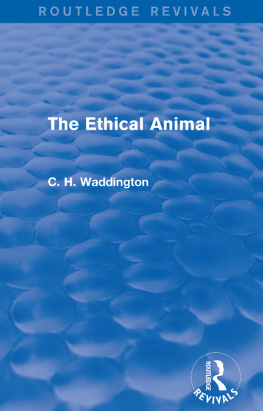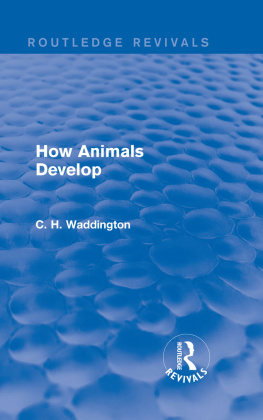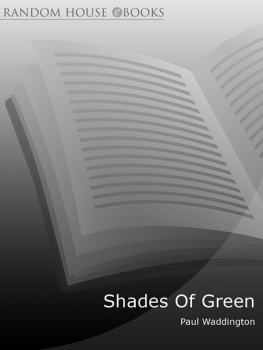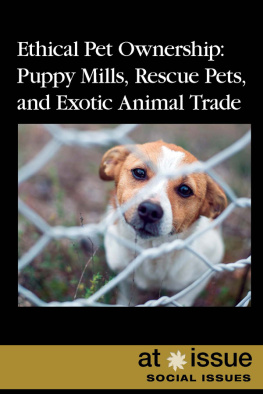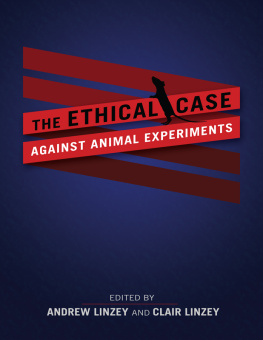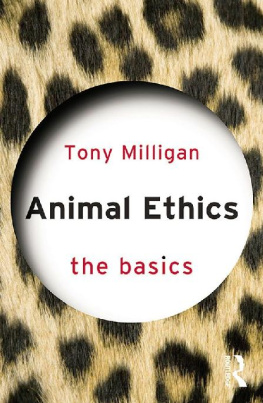Routledge Revivals
The Ethical Animal
First published in 1960, this book discusses the ethical implications of the view of mans nature and his place in the biological world. C. H. Waddington highlights issues of the time, such as social upheavals related to social mobility, and the changing nature of philosophical thinking in relation to the nature of good.
The author argues that man differs from all other animals in his ability for social teaching and learning and that this provides him with a second method of evolutionary advance, in addition to biology. He advances this through the idea that man has the capacity to entertain ethical ideas, which is an essential and necessary feature of this new mode of evolution. From here he draws the conclusion that a consideration of the broad trends of evolution provides a framework within which we can rationally discuss the relative merits of the various systems of ethical belief current in the world.
In presenting his argument, Waddington draws on research in biology, psychology, the social sciences, and philosophy. He concludes with a short consideration of some of the most important ethical problems facing mankind at the time of the books publication.
The Ethical Animal
C. H. Waddington
First published in 1960
by George Allen and Unwin LTD
This edition first published in 2016 by Routledge
2 Park Square, Milton Park, Abingdon, Oxon, OX14 4RN
and by Routledge
711 Third Avenue, New York, NY 10017
Routledge is an imprint of the Taylor & Francis Group, an informa business
1960 George Allen and Unwin LTD
The right of C. H. Waddington to be identified as author of this work has been asserted by him in accordance with sections 77 and 78 of the Copyright, Designs and Patents Act 1988.
All rights reserved. No part of this book may be reprinted or reproduced or utilised in any form or by any electronic, mechanical, or other means, now known or hereafter invented, including photocopying and recording, or in any information storage or retrieval system, without permission in writing from the publishers.
Publishers Note
The publisher has gone to great lengths to ensure the quality of this reprint but points out that some imperfections in the original copies may be apparent.
Disclaimer
The publisher has made every effort to trace copyright holders and welcomes correspondence from those they have been unable to contact.
A Library of Congress record exists under LC control number: 61002105
ISBN 13: 978-1-138-95683-4 (hbk)
ISBN 13: 978-1-315-66544-3 (ebk)
ISBN 13: 978-1-138-95693-3 (pbk)
C. H. WADDINGTON
F.R.S.
Professor of Animal Genetics
University of Edinburgh
The Ethical Animal
Ruskin House
GEORGE ALLEN & UNWIN LTD
MUSEUM STREET LONDON
FIRST PUBLISHED IN 1960
This book is copyright under the Berne Convention. Apart from any fair dealing for the purpose of private study, research, criticism or review, as permitted under the Copyright Act, 1956, no portion may be reproduced by any process without written permission. Inquiries should be addressed to
the Publishers
George Allen & Unwin Ltd. 1960
PRINTED IN GREAT BRITAIN
in 11 on 12 pt Bell type
BY SIMSON SHAND LTD
LONDON, HERTFORD AND HARLOW
THIS book is an attempt to establish a certain thesis about the nature of the framework within which our ethical beliefs should be evaluated and criticized. To summarize the argument very briefly, I shall try to support the following four points: Firstly, that the human system of social communication functions as such an efficient means of transmitting information from one generation to the next that it has become the mechanism on which human evolution mainly depends. Secondly, that this system of socio-genetic transmission can operate only because the psychological development of man is such that the new born baby becomes moulded into a creature which is ready to accept transmitted information; and, I shall suggest, it is an empirically observed fact that this acceptance is founded on the formation of authority-bearing systems within the mind which also result in the human individual becoming a creature which goes in for having beliefs of the particular tone that we call ethical. Thirdly, I argue that observation of the world of living things reveals a general evolutionary direction, which has a philosophical status similar to that of healthy growth, in that both are manifestations of the immanent properties of the objective world. Finally, I conclude that any particular set of ethical beliefs, which some individual man may advance, can be meaningfully judged according to their efficacy in furthering this general evolutionary direction.
This chain of arguments was first put forward, in a somewhat undeveloped form it is true, in a number of articles published in the early forties. They caused a good deal of discussion, some of which was brought together in a book entitled Science and Ethics. Many of those who discussed my remarks, either to agree or disagree with them, did not seem to me to have fully grasped what I was trying to say, doubtless owing to my failure to express it clearly. It seemed to be often assumed that I was merely repeating, in a somewhat modernized form, the old arguments for the evolutionary ethics of Herbert Spencer and the Social Darwinists; and these were countered by a reference to Moores well-known refutation of the Naturalistic Fallacy. In this book I have therefore tried to deal more explicitly with the criticisms of philosophers who argue either that ethics cannot be meaningfully discussed from a naturalistic point of view, or that they cannot be rationally discussed at all.
Julian Huxley1 is the author whose opinions come nearest to those which I am putting forward. Indeed, in his Evolution and Ethics he states that Dr Waddingtons challenging thesis gave me the first impetus to a radical treatment of the subject, and he expressed general agreement with many of my arguments, to which in fact his own earlier writings had greatly contributed. More recently, in his preface to Teilhard de Chardins The Human Phenomenon, he has expressed the view that his attempt to relate the development of moral codes and religions to the general trends of evolution was inadequate. If this is indeed the case, in my opinion the inadequacy is to be sought in a failure to realize the full intricacy of the way in which mans ethical activities are related to his evolutionary mechanism. Huxley argues, correctly enough, that our ethical beliefs have evolutionary consequences; but he does notor at least not consistentlymake the point that the functioning of our socio-genetic mechanism demands that we should accept some sort of authority, and ethical beliefs are one of the kinds that in practice play this role. The absence, or weakness, of this link in his chain of argument laid some of Huxleys statements open to attack from philosophical opponents of the alleged Naturalistic Fallacy.
In this book I have attempted to develop the argument in a way which cannot be so easily misunderstood. I am very conscious that the task of exposition is a difficult one, since it is necessary to venture not only outside my own area within biology into neighbouring disciplines in which I am not expert, such as studies on animal learning and social behaviour, but even further afield into psychology, sociology, anthropology, and finally outside the boundaries of science altogether, into philosophy. I can only hope that at least some of my fumbling statements in these fields will convey not too inaccurately the thoughts I am trying to express. If this is so, much of the credit must go to several friends who have read and criticized drafts of the manuscript, particularly Dr R. J. Spilsbury, who discussed fully with me the more philosophical chapters, and Dr Margaret Mead, who gave me much helpful advice particularly about anthropological and psychological topics.


